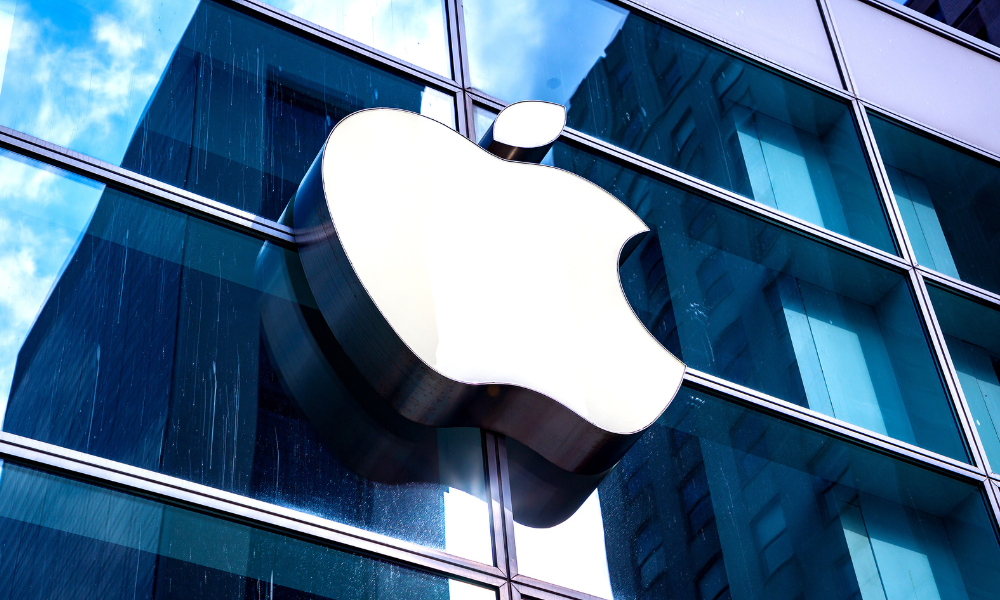

by Mark Gurman and Vlad Savov
Apple Inc. plans to source more than 19 billion chips from the US this year, part of a global supply chain shift to gradually lessen its reliance on China and elevate India for iPhone production.
Chief Executive Officer Tim Cook talked about leaning more heavily on Taiwan Semiconductor Manufacturing Co., which is expanding its Arizona operations to half a dozen plants. He also affirmed expectations that Apple will in future make the vast majority of its US-bound iPhones in India — reducing output from China as the Donald Trump administration threatens to slap punitive tariffs on its Asian rival. India was mentioned almost as many times as China on Thursday’s post-earnings conference call, reflecting its rising importance.
Cook however was mum on a series of questions about how potential tariffs on consumer electronics may affect Apple’s business, saying “it’s very difficult to predict beyond June.” Chief Financial Officer Kevan Parekh said Apple’s commentary on the call assumes that current global tariff rates and policies remain in effect and that the global macroeconomic outlook doesn’t worsen.
The Cupertino, California-based company’s much-awaited quarterly earnings report failed to soothe investor concerns about its biggest challenges, including escalating tariff costs and a slowdown in China. The company’s shares declined as much as 4.2% in late trading Thursday after Apple released second-quarter results that included worse-than-expected sales in China.
Apple has accelerated its manufacturing expansion in India, which is both rising as a market — at a time when Apple’s China sales keep declining — and is likely to be a more politically favored US trade partner over the long run. Apple already makes 20%, or one in five, of its iPhones in the South Asian country. It expects to import most of the iPhones for the US from India by the end of next year.
“We have a complex supply chain, there’s always risk in the supply chain,” Cook told analysts on the call. “What we learned some time ago was that having everything in one location had too much risk with it and so we have, over time, with certain parts of the supply chain, not the whole thing, but certain parts of it, opened up new sources of supply.”
Beyond India, Trump wants Apple to begin building its devices in the US. But that’s unlikely to happen at scale in the foreseeable future. For now, Cook pledged to ramp up local procurement of chips and other components.
The iPhone maker will obtain tens of millions of advanced processors from a new facility in Arizona operated by TSMC this year, Cook said. That’s started making processors for low-end iPads and Apple Watches, Bloomberg News has reported. Apple and TSMC have both announced US investments amounting to hundreds of billions of dollars in line with the White House’s push to bring advanced manufacturing to the country.
Trump’s administration has imposed tariffs on goods imported from China and threatened additional levies to other nations who don’t negotiate new trade agreements over the coming weeks. Some electronics including iPhones are at present exempt.
The Apple CEO also discussed how the company sources glass for iPhone screens from the US, likely referring to Corning Inc. Earlier this year, Apple said it would invest $500 billion in the US over the next four years, including by manufacturing AI servers at a plant in Texas.
Copyright Bloomberg News

Rajesh Markan earlier this year pleaded guilty to one count of criminal fraud related to his sale of fake investments to 10 clients totaling $2.9 million.

From building trust to steering through emotions and responding to client challenges, new advisors need human skills to shape the future of the advice industry.

"The outcome is correct, but it's disappointing that FINRA had ample opportunity to investigate the merits of clients' allegations in these claims, including the testimony in the three investor arbitrations with hearings," Jeff Erez, a plaintiff's attorney representing a large portion of the Stifel clients, said.

Chair also praised the passage of stablecoin legislation this week.

Maridea Wealth Management's deal in Chicago, Illinois is its first after securing a strategic investment in April.
Orion's Tom Wilson on delivering coordinated, high-touch service in a world where returns alone no longer set you apart.
Barely a decade old, registered index-linked annuities have quickly surged in popularity, thanks to their unique blend of protection and growth potential—an appealing option for investors looking to chart a steadier course through today's choppy market waters, says Myles Lambert, Brighthouse Financial.
